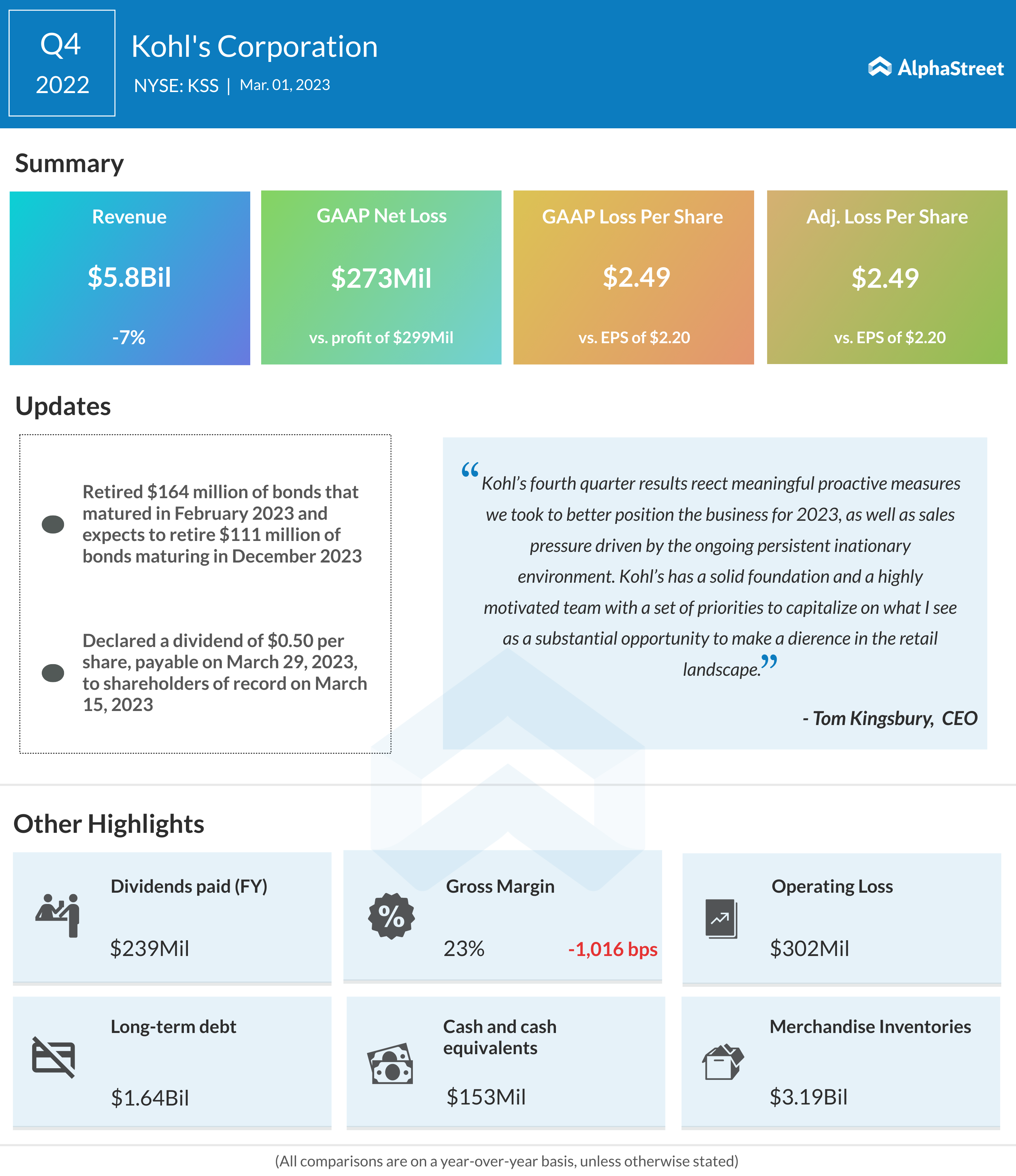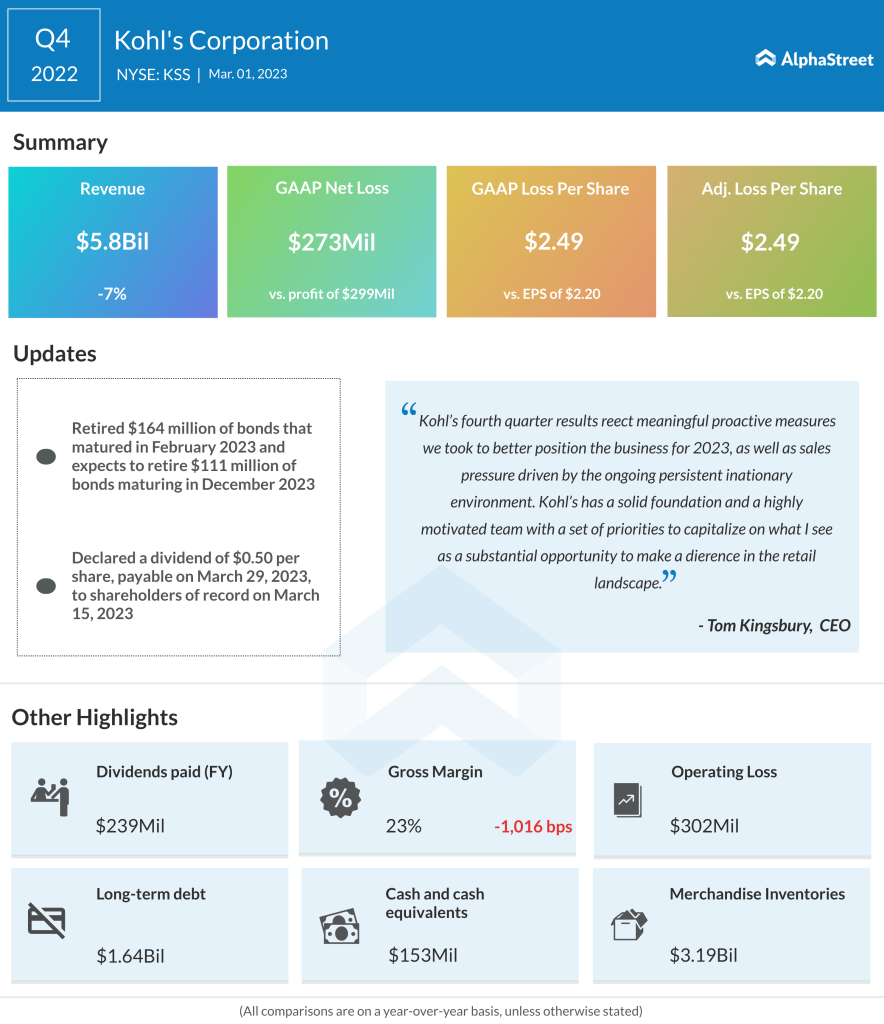Hold It?
Though it offers a good yield that is above the S&P 500 average, Kohl’s dividend has remained almost unchanged in recent years. Considering these factors, and the uncertainty surrounding the company’s future prospects, KSS is a risky investment option right now.
Kohl’s business has long been impacted by weak customer demand for its core products — apparel, footwear and accessories — and rising input costs, which in turn is taking a toll on margins. Meanwhile, the leadership is working to enhance customer experience by revising the merchandise mix and remodeling stores. While significant progress has been made in growing the digital business, the company needs to continue focusing on that area to keep pace with others. However, it will take some time for the initiatives to yield the desired results.

Weak Outlook
After ending fiscal 2022 on a weak note, Kohl’s will be publishing first-quarter earnings on May 24, before the opening bell. Experts are of the view that the bottom line slipped into the negative territory from a profit of $0.11 per share last year, as it did in the previous quarter. The weakness is attributable to an estimated 4% decrease in sales to $3.34 billion.
From Kohl’s Q4 2022 earnings conference call:
“We are prudently planning the year with sales down 2% to 4% and our operating margin and earnings pressured largely as a result. I want to be realistic in setting expectations. The benefits from our actions will take time. However, I am confident that successful execution against our priorities will produce the intended improvement in sales and earnings growth over the long term. While 2023 may be viewed as a transitional year, it is our objective to show progressive improvement against our priorities and actions as we move through the year.”
Q4 Outcome
Earnings missed estimates in the final three months of 2022, marking the worst performance in more than three years. The company reported a net loss of $273 million or $2.49 per share for the fourth quarter, compared to a profit of $299 million or $2.20 per share in the same period of last year. Revenues dropped 7% annually to $5.8 billion and came in below the market’s prediction. The results show that the holiday season didn’t help sales, despite the promotional offers and discounts.
After starting the week on a low note, Kohl’s shares regained some strength in the last session. They traded up 5% on Wednesday afternoon.
